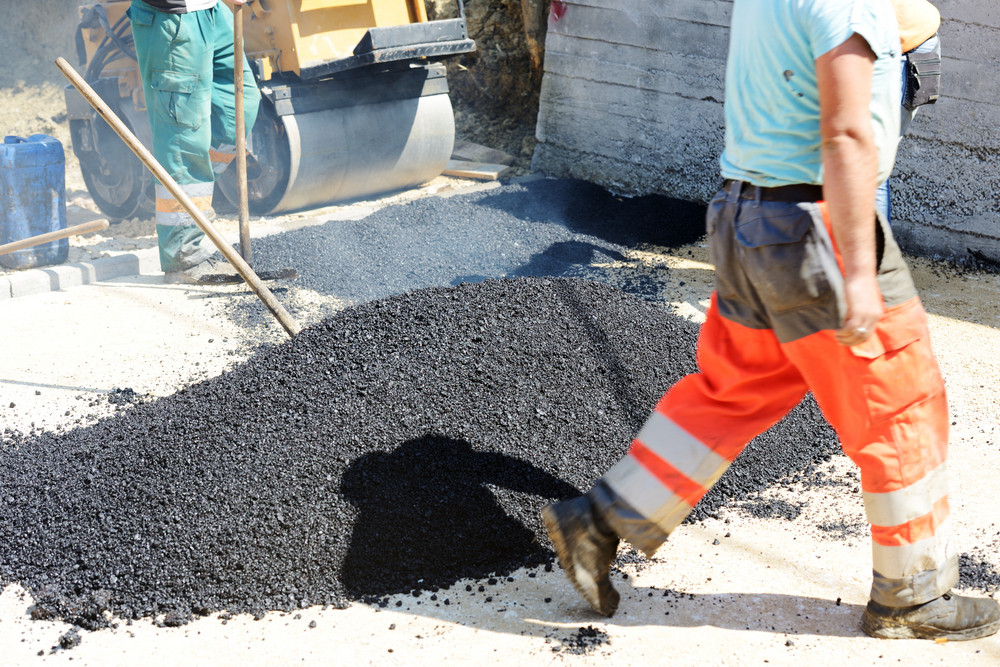Highlights:
- Understand the difference between residential and commercial paving to choose the right materials and methods for your property’s needs.
- Asphalt is cost-effective and ideal for colder climates, while concrete offers durability and design flexibility for high-traffic or heat-prone areas.
- Choose contractors with proven experience in Spring Hill, and ask for project examples, local references, and licensing information.
- Ask the right questions about process, permits, insurance, and warranties to ensure you’re hiring a trustworthy and capable paving company.
- Budget wisely by getting multiple detailed quotes, factoring in prep work, drainage, and long-term maintenance to avoid hidden costs.
- Plan your project around optimal weather conditions and work with contractors who communicate clearly and manage timelines effectively.

Most parking lots wear out faster than you expect, leaving you with unexpected costs and headaches. If you’re managing property in Spring Hill, TN, choosing the right asphalt paving service can save you time and money down the road. This article breaks down what to look for in local asphalt services, so your parking lot stays smooth and safe for years.
Understanding Asphalt Paving Needs
Asphalt paving isn’t one-size-fits-all. Your project’s success depends on matching the right paving solution to your specific needs. Let’s break down the key differences between residential and commercial paving, and explore common materials used in Spring Hill.
Residential vs. Commercial Paving
Residential and commercial paving projects have distinct requirements. Homes, driveways, and walkways typically need smaller equipment and less heavy-duty materials. Your focus is often on curb appeal and durability against everyday vehicle traffic.
Commercial paving, like parking lots, faces tougher challenges. You need surfaces that can handle constant traffic, heavy vehicles, and weather extremes. The scale is usually larger, requiring specialized equipment and expertise. Commercial projects also need to meet ADA compliance and local building codes.
Think about your property’s use. A small office complex might have different needs than a busy shopping center. Residential paving often allows for more decorative options, while commercial jobs prioritize function and longevity.
Common Paving Materials and Their Benefits
Asphalt and concrete are the most popular paving materials in Spring Hill. Each has its strengths. Asphalt is cheaper upfront and faster to install. It’s also easier to repair and holds up well in cold weather. Many property owners choose asphalt for its smooth, quiet surface.
Concrete costs more initially but can last longer with proper care. It handles heat better than asphalt and offers more design options. You can stamp or color concrete for a custom look.
For eco-friendly options, consider permeable pavers. These allow water to drain through, reducing runoff and helping the environment. They’re pricier but can save on drainage systems.
Your choice depends on budget, climate, and intended use. A local paving expert can help you weigh the pros and cons for your specific project in Spring Hill’s climate.
Choosing the Right Paving Contractor
Picking the right contractor makes or breaks your paving project. You want someone who knows Spring Hill’s unique needs and has a track record of quality work. Here’s how to find the best fit for your job.
Questions to Ask Potential Contractors
Start by asking about their experience with projects like yours. How long have they been working in Spring Hill? Can they show examples of similar jobs they’ve completed?
Ask about their process. How do they prepare the site? What equipment do they use? A good contractor explains each step clearly.
Don’t forget about permits and insurance. Who handles getting the necessary paperwork? Are they fully insured to protect you if something goes wrong?
Pricing is crucial, but be wary of lowball offers. Ask for a detailed breakdown of costs. What’s included? Are there potential extra charges?
Lastly, ask about warranties. What guarantees do they offer on their work? How do they handle issues that might come up after the job’s done?
Write down their answers. This helps you compare contractors fairly and spot any red flags.
Evaluating Contractor Experience and Reputation
Look beyond what contractors tell you. Check their track record in Spring Hill. Ask for references from past local clients. Call these references and ask about their experience.
Check online for reviews, but be critical. Look for patterns in feedback, not just one-off complaints or praise. The Better Business Bureau can be a good resource for checking a company’s history.
Visit some of their completed projects if possible. How do these sites look after a few years of use? This gives you a real-world view of their work quality.
Ask about their team. Do they use their own employees or subcontractors? Experienced, in-house crews often provide more consistent results.
Remember, the cheapest bid isn’t always the best value. Focus on finding a contractor with a solid reputation for quality work in Spring Hill. Your parking lot is a long-term investment – choose a partner who’ll help it last.

Planning Your Asphalt Paving Project
Good planning is key to a successful paving project. Let’s look at how to budget effectively and manage your project timeline.
Budgeting for Your Paving Project
Start by getting detailed quotes from at least three reputable contractors. This gives you a realistic price range for your project. Remember, the lowest bid isn’t always the best choice. Look for value – quality materials and workmanship that will save you money long-term.
Factor in potential extra costs. Site preparation, drainage work, or removing old pavement can add to your bill. Ask contractors to explain any possible additional expenses upfront.
According to Advance Paving Co. INC, you should consider long-term maintenance costs, too. Higher quality materials might cost more now, but save you on repairs later. Ask about sealcoating and other maintenance needs. Budget for these future expenses to get a true picture of your project’s cost.
Don’t forget about timing. Paving in off-peak seasons might get you better rates. But be careful – extreme weather can affect paving quality. Balance potential savings against optimal paving conditions.
Timeline and Project Management Considerations
Paving projects need careful scheduling. Weather plays a big role – too hot or cold, and your asphalt won’t set right. Spring and fall are often ideal in Spring Hill. Plan around these seasons for the best results.
Ask contractors about their timeline. How long will each stage take? This includes site prep, paving, and curing time. Get this in writing to avoid surprises.
Think about how paving will impact your property use. For businesses, you might need to close parts of your parking lot. Plan for this disruption. Can work be done in stages to keep some areas open?
Communication is crucial. Choose a contractor who keeps you updated throughout the process. They should alert you to any delays or changes promptly.
After paving, there’s a curing period. Your contractor should give clear instructions on when it’s safe to use the new surface. Follow these guidelines to protect your investment.
Remember, rushing a paving job often leads to problems down the road. A well-planned project might take longer but will give you better, longer-lasting results.
By carefully budgeting and planning your timeline, you set yourself up for a smooth, successful paving project. Take the time to do it right, and your new asphalt surface will serve you well for years to come.
Choosing the Right Asphalt Services in Spring Hill, TN
When it comes to paving your driveway, parking lot, or commercial space, choosing the right asphalt services in Spring Hill, TN is a decision that impacts not just your budget—but your property’s long-term durability, appearance, and value. Understanding the difference between residential and commercial paving, selecting the right materials for your climate and usage, and vetting contractors for experience, licensing, and clear communication are all essential steps.
Don’t just go with the lowest bid—go with the team that offers proven expertise, transparent pricing, and a plan that fits your needs. By asking the right questions, reviewing contractor history, and planning for both installation and future maintenance, you’ll set your project up for long-term success.
With thoughtful planning and the right local contractor, your asphalt surface will not only look great but also stand the test of time.

